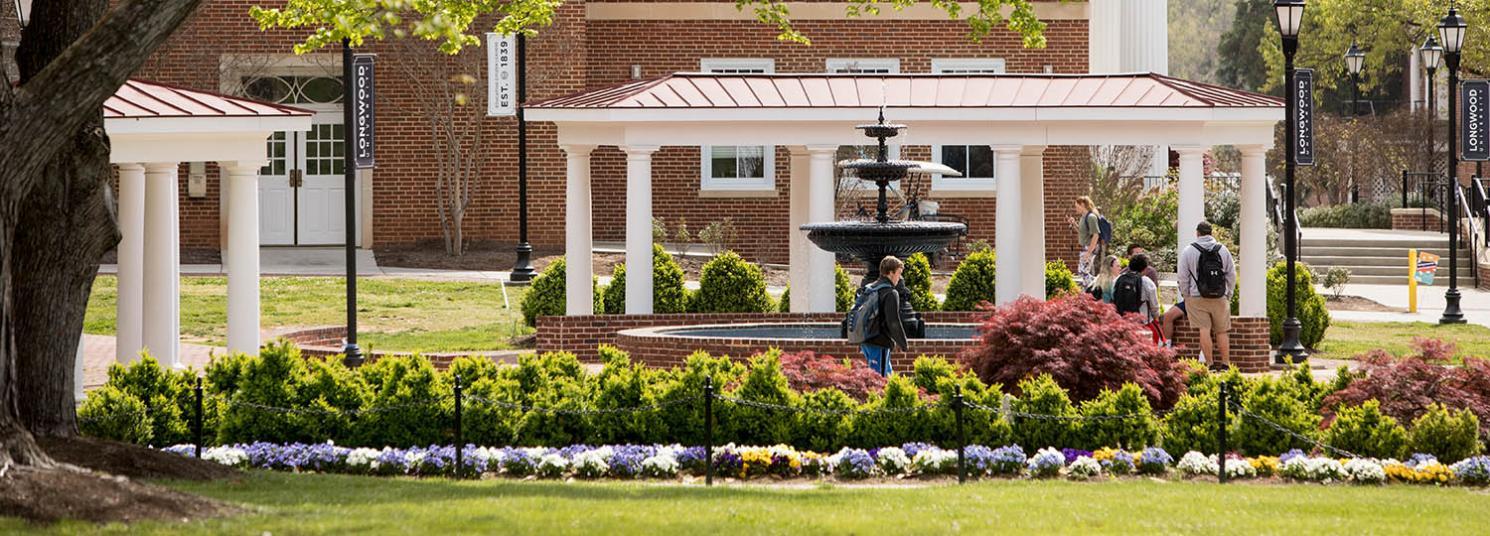


College life prompts a lot of questions about serious topics, including campus security. We took the opportunity to address head-on some of the most common questions we hear with the help of the people at Longwood who work most closely with these issues.
Q&A on Campus Security
Below, we address campus security issues with Chief of Police Bob Beach, a veteran of law enforcement who’s worked to keep communities safe across the Commonwealth for nearly 50 years.
Is the Longwood campus safe?
Overall, Longwood's campus is an exceptionally safe place. Longwood’s police department is staffed by 19 full-time sworn officers, more than double the national average for a student population the size of ours, and we have incorporated modern technological tools into the work of keeping campus safe. We have substantially lower rates of crime here than on the typical campus this size. The vast majority of cases we deal with are nonviolent offenses, ranging from liquor law violations to petty larceny. But one important safety tool is clear communications and transparency. We publish online a daily log of every reported crime here, and we publish an annual security report open to the public the provides detailed information. This is the most recent report: (pdf)
To keep our campus as safe as possible, we all have to work together, from students to faculty and staff to community members. That’s why we’ve implemented things like the LiveSafe app, which allows students to get in touch directly with dispatchers on their phones, track movement and share locations with friends. The LUPD operates more than 20 programs for students, including Code Red training and self-defense classes. Just this year, we combined dispatch offices with the town of Farmville to better serve the entire community. We’ve also invested heavily over the last seven years in technology, including installing and operating more than 300 security cameras across campus and in university-managed housing.
It’s important to note that our department’s philosophy is based on the principles of community policing: a proactive and cooperative partnership between us as law enforcement officers and the campus community to improve the overall quality of life by maintaining mutual trust and respect, working together to prevent crime, and recognizing and solving problems together.
Are the Longwood Police “real” police?
Yes. Every Longwood police officer is a sworn law enforcement officer of the Commonwealth of Virginia who has gone through the same training as every other police officer in the state. Our office has a substantial budget that has seen an annual increase every year for the past seven years, so we have the ability to improve our resources, invest in new technology that acts as a force multiplier and maintain a stable core of well-trained officers.
Additionally, every Longwood officer is sworn in as a Prince Edward County Sheriff’s deputy, and we have concurrent jurisdiction with Farmville, meaning we can assist each other in investigations and crime-prevention efforts.
I am very proud that we are the only university in Virginia that has been ranked in the top 20 in the nation for our security operation for the past nine years by Security Magazine. It’s a testament to the professionalism of our officers and the investment and trust we have from the university’s administration.
I know sexual assault is a big issue across higher education. How does Longwood handle reports of sexual assault? Are the police involved?
The university takes reports of sexual assault very seriously. The police are absolutely involved in investigating any criminal portion of a sexual assault report, but there is a different, student-focused Title IX office led by Lindsey Moran and Jen Fraley, both trained Title IX officials, whose focus is providing support to any students who may be victims of sexual assault. Title IX support and investigations are run by trained staff, not police officers, through that office. If it’s found that a student has violated Longwood’s sexual misconduct policy, disciplinary action up to and including expulsion is taken.
Our police department works closely with the Title IX office, but is mostly on a separate track as we investigate criminal activity in conjunction with the commonwealth’s attorney.
How does Longwood communicate with students and others during an emergency situation?
In an emergency situation, Longwood has a siren, a desktop alert system, and a system that can push alerts to cell phones, emails and social media. Our emergency communications personnel are trained in which forms of communication to use in different situations. We use a system called e2campus for emergency alerts, which allows us to send messages quickly through various channels. Anyone can sign up for these alerts by going to longwood.omnilert.net and clicking the “sign up” link at the top right.
In communicating with students, we work hard to strike the right balance between sharing what students need to know vs. inundating them with so much information that they tune out and ignore critical messages in a real emergency. Students who are interested in more detailed information can always check the daily crime logs for police activity.
Additionally, the website alerts.longwood.edu is a repository for all alerts and emergency notifications, and is updated frequently when the university is dealing with an ongoing situation.
We live in an age of understandable worry about active shooter scenarios in public places like college campuses. What does Longwood do to prepare for such situations?
All Longwood police officers undergo regular active shooter training. Communications staff also undergoes regular training and workshops that include active shooters to ensure everyone involved in the response—from police to communications staff—knows their role in that scenario. LUPD also runs free Code Red training for students to prepare them for an active shooter scenario.
What is Longwood doing overall to continue to improve security?
We are always looking for ways to get better, whether that’s adopting a new piece of technology that can help keep students safe or aid in investigations, investing in additional training for our officers and staff, or implementing a new practice that will help build relationships with students and the broader community. Our officers do a great job every day, but one thing I am always impressed by is their commitment to finding ways to improve.
From an overall perspective, the Longwood administration continues to actively invest in campus security. We have installed more than 300 security cameras on campus and in university-managed housing complexes and nearly 100 blue light phones in just the last seven years. And with each additional building that is constructed, we improve the security capability of this office.
I’d also like to highlight the great relationship we have with Farmville police. We work together very closely to ensure that not just campus but the entire community is safer. That’s a powerful additional resource to draw on, but one that has been a priority of mine from the beginning.
What can students and families do to ensure their college experience is a safe one?
The first thing I’d say is know what resources are available to you and take advantage of them. We offer a lot of programs for students that can really help them be aware of their surroundings and be safer overall. The second is to see the police as an ally. Our top priority is keeping students safe while they’re at school, and we are more effective when there are open lines of communication between students and police officers. And lastly I’d say what every parent says: Make smart decisions. Use the buddy system, don’t be afraid to ask for help when you feel unsafe, and be aware of your surroundings.
Contact Information
The Police Department Headquarters is located in on the ground floor of Dorrill Dining Hall. If you have a non-emergency issue or concern call 434-395-2091 or email police@longwood.edu. In case of an emergency, always call 911.

Col. Bob Beach
- Longwood's Police Chief since 2011
- Previous Experience:
- 25 years with Fairfax County Police Department
- Commander, hostage negotiation unit
- President, Metropolitan Washington Hostage Negotiators Group
- Co-author, U.S. State Department international hostage training program
- Hammer/Gregorian Crisis Management Group, Director of Operations
- BAHR Training Group, senior consultant
- Awards: Commendations from U.S. Secret Service, Department of State Diplomatic Security Service
